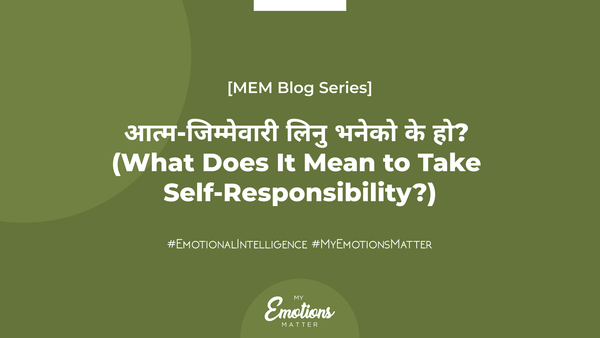Self-Focused Mindset in the Workplace
When working in a team, we operate either from a Self-focused Mindset or an Impact-focused Mindset (The Arbinger Institute, n.d.). When we are self-focused, everything we do tends to be about us. We see others as objects we can use for our growth, blame for inconvenience and ignore if they can neither help or hurt us. In short, we see others as objects that matter less than we do. Here are some habitual patterns that might be indicative of a Self-focused Mindset:
As you go through this list, try focusing on yourself rather than being tempted to judge someone else for doing the same:
1. Winning too much: The need to win at all costs and in all situations - when it matters, when it doesn’t, and when it’s totally beside the point.
2. Adding too much value: The overwhelming desire to add our two cents to every discussion.
3. Passing judgment: The need to rate others and impose our standards on them.
4. Making destructive comments: The needless sarcasm and cutting remarks that we think make us sound sharp and witty.
5. Starting with “No,” “But,” or “However”: The overuse of these negative qualifiers which secretly say to everyone, “I’m right. You’re wrong.”
6. Telling the world how smart we are: The need to show people we’re smarter than they think we are.
7. Speaking when angry: Using emotional volatility as a management tool.
8. Negativity, or “Let me explain why that won’t work”: The need to share our negative thoughts even when we weren’t asked.
9. Withholding information: The refusal to share information to maintain an advantage over others.
10. Failing to give proper recognition: The inability to praise and reward.
11. Claiming credit that we don’t deserve: The most annoying way to overestimate our contribution to any success.
12. Making excuses: The need to reposition our annoying behavior as a permanent fixture so people excuse us for it.
13. Clinging to the past: The need to deflect blame away from ourselves and onto events and people from our past; a subset of blaming everyone else.
14. Playing favorites: Failing to see that we could be treating someone unfairly.
15. Refusing to express regret: The inability to take responsibility for our actions, admit we’re wrong, or recognize how our actions affect others.
16. Not listening: The most passive-aggressive form of disrespect for colleagues.
17. Failing to express gratitude: The most basic form of bad manners.
18. Punishing the messenger: The misguided need to attack the innocent, who usually only try to help us.
19. Passing the buck: The need to blame everyone but ourselves.
20. An excessive need to be “me”: Exalting our faults as virtues simply because they’re who we are.
Write-up inspired by Marshall Goldsmith's 'What Got You Here Won't Get You There'.
Questions for Reflection:
1. Which of these habits can you identify in yourself?
2. Even though you might feel justified in exhibiting these habits, consider the long-term cost of your impact.
References
The Arbinger Institute. (n.d.). What is an outward mindset? The Arbinger Institute. https://arbinger.com/blog/what-is-an-outward-mindset/




